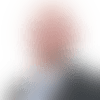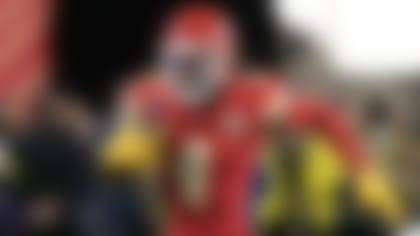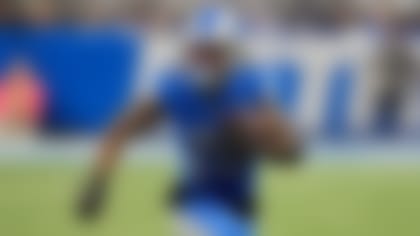Super Bowl LVI's in the books, ending the longest season in NFL history. How did the new guys perform in the expanded 285-game slate?
Over the past couple weeks, NFL.com rolled out division-by-division files featuring grades for each team's rookie class, with Gennaro Filice and Nick Shook sharing the evaluation duties. Upon completion of this series, Filice and Shook had a meeting of the minds to officially rank every group, from 1 to 32. Here's the pecking order.
Round 2
- (No. 58) Nick Bolton, LB, 16 games/12 starts
- (63) Creed Humphrey, C, 17 games/17 starts
Round 4
- (144) Joshua Kaindoh, DE, 3 games/0 starts
Round 5
- (162) Noah Gray, TE, 16 games/1 start
- (181) Cornell Powell, WR, 0 games/0 starts
Round 6
- (226) Trey Smith, OG, 17 games/17 starts
SHOOK: Kansas City's grade is all about maximizing picks. The Chiefs sent their first-round pick in 2021 and other selections to Baltimore to acquire left tackle Orlando Brown (assets well spent), then nailed their second-round pick by choosing Bolton, a Pro Football Writers of America All-Rookie Team selection who graded out as the 13th-best linebacker in the league, per Pro Football Focus. Kansas City followed that up by finding its center of the future in Humphrey, who began his NFL career by performing better than any other player at the position, per PFF. He also earned PFWA All-Rookie honors. Kaindoh missed most of his rookie season, having landed on injured reserve in early October with an ankle injury. Gray saw some playing time at tight end behind Travis Kelce and Blake Bell while also playing special teams regularly. Powell was cut at the end of camp and returned as a practice squad member before signing a reserve/future contract in February. And finally, a premier Day 3 find came in the form of Smith, who teamed with Humphrey and Joe Thuney to make an excellent interior trio. Smith also earned PFWA All-Rookie recognition and will be an important part of Kansas City's offensive line for years to come.
Round 1
- (No. 9) Patrick Surtain II, CB, 16 games/15 starts
Round 2
- (35) Javonte Williams, RB, 17 games/1 start
Round 3
- (98) Quinn Meinerz, OG, 15 games/9 starts
- (105) Baron Browning, LB, 14 games/9 starts
Round 5
- (152) Caden Sterns, S, 15 games/2 starts
- (164) Jamar Johnson, S, 3 games/0 starts
Round 6
- (219) Seth Williams, WR, 2 games/1 start
Round 7
- (237) Kary Vincent Jr., CB, 2 games/1 start (w/ PHI)
- (239) Jonathon Cooper, DE, 16 games/5 starts
- (253) Marquiss Spencer, DE, 1 game/0 starts
SHOOK: Well, the Broncos certainly knocked their first two picks out of the park. Surtain quickly validated Denver's selection with his first career interception in Week 2. He finished with four picks, made the PFWA All-Rookie Team and was PFF's 41st-graded corner in 2021, just behind Colts Pro Bowler Kenny Moore. Williams is Denver's long-term answer at running back, having averaged 4.4 yards per carry while scoring seven scrimmage touchdowns and breaking 1,200 scrimmage yards. Meinerz has a promising future ahead of him after appearing in 15 games (nine starts) and earning a top-40 PFF grade among guards. Browning was an effective player, transitioning from a special-teams contributor to a starter from Week 8 onward. Sterns figures to replace Kareem Jackson (33 years old and headed for free agency) going forward, and he showed potential with a couple of interceptions in 2021. Johnson appeared in three games solely as a special-teams player. Williams appeared in two games, catching one pass for 34 yards. Vincent was shipped to Philadelphia ahead of the trade deadline. Cooper was a nice Day 3 discovery, tallying 38 tackles (four for loss) and 2.5 sacks as a rotational player while also filling a special teams role. Spencer was released as part of final cuts before joining the practice squad and signing a reserve/future contract in January.
Round 1
- (No. 6) Jaylen Waddle, WR, 16 games/16 starts
- (18) Jaelan Phillips, OLB, 17 games/5 starts
Round 2
- (36) Jevon Holland, S, 16 games/13 starts
- (42) Liam Eichenberg, OT, 17 games/16 starts
Round 3
- (81) Hunter Long, TE, 7 games/2 starts
Round 7
- (231) Larnel Coleman, OT, 0 games
- (244) Gerrid Doaks, RB, 0 games
Notable Undrafted Free Agent
- Robert Jones, OG, 8 games/1 start
FILICE: The NFL is typically the great equalizer for college football gamebreakers. In the pro game, everyone's freakishly athletic. And yet, watching Waddle on Sundays felt just like watching Waddle on Saturdays, with the same thought invariably springing to mind: That guy just looks different. In a sea of physical marvels, Waddle's explosiveness still stands out. Every touch puts you on the edge of your seat. And while the Alabama product set a rookie record with 104 catches, somehow he seemed underutilized. Peppered with quick throws throughout his rookie campaign, Waddle rarely had the opportunity to showcase his downfield dynamism. (Don't let the 5-foot-10, 182-pound frame fool you -- Waddle has no problem making contested catches.) Here's hoping the new coaching staff unlocks MAXIMUM WADDLE in 2022. Mike McDaniel's recent words on the receiver inspire confidence: "I would start him in fantasy."
Waddle wasn't the only Year 1 stud from this Dolphins draft class, either. Displaying the kind of versatility today's NFL teams covet in the safety position, Holland stuffed the stat sheet with 68 tackles, 10 passes defensed, seven QB hits, two fumble recoveries, 2.5 sacks and two interceptions. The second-rounder posted the fourth-highest Pro Football Focus grade in the entire rookie class, only trailing Offensive Rookie of the Year Ja'Marr Chase, Defensive Rookie of the Year Micah Parsons and egregious Pro Bowl snub Creed Humphrey. Meanwhile, Phillips really came on in the back half of the season, finishing with 8.5 sacks and earning a spot alongside Waddle and Holland on the Pro Football Writers of America All-Rookie Team.
On the down side, Eichenberg continued a recent Dolphins tradition of throwing a rookie O-lineman into the fire and watching him suffer fourth-degree burns. A 16-game starter, Eichenberg committed 10 penalties and gave up nine sacks as one of the leakiest bookends in the NFL.
Round 1
- (No. 7) Penei Sewell, OT, 16 games/16 starts
Round 2
- (41) Levi Onwuzurike, DT, 16 games/0 starts
Round 3
- (72) Alim McNeill, NT, 17 games/6 starts
- (101) Ifeatu Melifonwu, CB, 7 games/4 starts
Round 4
- (112) Amon-Ra St. Brown, WR, 17 games/9 starts
- (113) Derrick Barnes, LB, 17 games/6 starts
Round 7
- (257) Jermar Jefferson, RB, 7 games/0 starts
Notable Undrafted Free Agent
- Jerry Jacobs, CB, 13 games/9 starts
- Tommy Kraemer, OG, 9 games/3 starts
- Ryan McCollum, C, 13 games/1 start
- AJ Parker, CB, 13 games/7 starts
- Riley Patterson, K, 7 games/0 starts
- Brock Wright, TE, 10 games/5 starts
FILICE: Remember how freakin' AMPED Brad Holmes and Dan Campbell were to select Sewell at No. 7 overall? Boisterous bro hugs, impassioned table slaps, full-throated WOOOOOOs that'd make Ric Flair proud -- that draft-night prospect call really had it all. And with Year 1 in the books, Detroit's new regime deserves a hearty slap on the back for the rookie class as a whole.
Of course, it wasn't smooth sailing from Day 1, even for the ballyhooed blocker who set off that war room eruption. Much like eventual Offensive Rookie of the Year winner Ja'Marr Chase, Sewell endured some early struggles. While the Bengals receiver had drop issues, the Lions tackle clearly didn't immediately feel comfortable in his transition to the right side of the line. But like Chase, Sewell eventually settled in to become a dominant force. One thing that appeared to help Sewell get out of his rut: Just before the season kicked off, Taylor Decker suffered a finger injury that landed him on injured reserve, allowing Sewell to return to the blind side for two months. But even after Decker's activation sent Sewell back to the right side, the rookie thrived. In his final eight games of the season, he allowed just one sack while continually blowing open holes in the ground game. And speaking of second-half surges, St. Brown's production exploded when the calendar flipped to December. Over the final six weeks of the season, the slot machine racked up the second-most catches in the entire NFL (51), behind only receiver triple-crown winner Cooper Kupp (53). Add in 560 yards (fourth-most) and five touchdowns (tied for second) during this span, and the 17th receiver selected in the 2021 draft suddenly became a fantasy league winner.
While some of the other picks in Rounds 2-4 experienced ups and downs (and injuries), McNeill was a player who offered strong potential on the nose -- 330-pounders aren't supposed to be that athletic. I mean, look at the big man's bend on this sack! And Holmes really did some fine work in the undrafted free-agent market, with a half dozen players providing Year 1 contributions. The two most notable names: Jacobs, who was the team's best cornerback before suffering an ACL tear in December, and Patterson, who settled the kicker position by converting 13 of 14 field goal attempts over the final seven weeks of the season.
Round 1
- (No. 5) Ja'Marr Chase, WR, 17 games/17 starts
Round 2
- (46) Jackson Carman, OG, 17 games/6 starts
Round 3
- (69) Joseph Ossai, DE, 0 games
Round 4
- (111) Cam Sample, EDGE, 14 games/0 starts
- (122) Tyler Shelvin, DT, 3 games/0 starts
- (139) D'Ante Smith, OG, 2 games/1 start
Round 5
- (149) Evan McPherson, K, 16 games
Round 6
- (190) Trey Hill, C, 13 games/3 starts
- (202) Chris Evans, RB, 14 games/1 start
Round 7
- (235) Wyatt Hubert, DE, 0 games
SHOOK: Chase lit up the NFL in 2021. He broke the league record for the most receiving yards by a rookie with 1,455, waltzed to the Offensive Rookie of the Year award and keyed the Bengals' run to Super Bowl LVI. Carman played three different positions -- right guard, left guard and left tackle -- out of necessity after losing the starting job at right guard in November. He's since proven fairly valuable, replacing the struggling Hakeem Adeniji at times in Cincinnati's AFC Championship Game win, and he could very much become a reliable guard in the future. The promising Ossai had his year wiped out by a preseason wrist injury. Sample filled a rotational role, recording 1.5 sacks and 14 tackles. Shelvin only played considerable snaps in two games (Week 18 at Cleveland and Cincinnati's Divisional Round win over Tennessee). Smith was a backup whose chance at significant action came when Cincinnati rested its starters in Week 18. McPherson shook off occasional early struggles to become a lights-out clutch kicker late in the season, starting a perfect streak in Week 17 that carried into Super Bowl LVI; he joined Chase on the Pro Football Writers of America All-Rookie Team. Hill played ample snaps in a few games in 2021, manning a fill-in role otherwise. Evans became a nice spell back behind Joe Mixon and Samaje Perine. Hubert's rookie season ended in July as a result of a torn pectoral.
Round 1
- (No. 15) Mac Jones, QB, 17 games/17 starts
Round 2
- (38) Christian Barmore, DT, 17 games/2 starts
Round 3
- (96) Ronnie Perkins, OLB, 0 games
Round 4
- (120) Rhamondre Stevenson, RB, 12 games/2 starts
Round 5
- (177) Cameron McGrone, LB, 0 games
Round 6
- (188) Joshuah Bledsoe, S, 0 games
- (197) William Sherman, OT, 1 game/0 starts
Round 7
- (242) Tre Nixon, WR, 0 games
FILICE: The fifth quarterback off the board inarguably enjoyed the best rookie campaign of the bunch. Dogged by skeptics (including this hack) throughout the pre-draft process and then the entire summer leading up to the 2021 campaign, Jones proceeded to guide New England back to the playoffs, hit the Pro Bowl and finish second in Offensive Rookie of the Year voting. While dual-threat quarterbacks are all the rage these days, this Alabama alum is a throwback pocket passer. That's not to say he's a sitting duck -- like a certain G.O.A.T. who pastured in Foxborough for two decades, Jones possesses the kind of deft pocket movement that bedevils a pass rush. And while his raw athleticism and arm strength leave something to be desired, Jones is a highly accurate thrower with a cerebral grasp of the game well beyond his years. With a playing style that's long on efficiency and short on electricity, Jones' long-term ceiling remains an open question. But the floor is far higher than many anticipated. Resident QB obsessive Gregg Rosenthal ranked Mac as a top-half starting quarterback in Year 1.
With Jones as the headliner, the Alabama-New England pipeline treated the Patriots quite well in this draft class. Famous friends with Nick Saban, Bill Belichick immediately doubled down on the Tuscaloosa talent pool by snatching up Barmore with the Pats' second selection. As the first defensive tackle off the board at No. 38 overall, Barmore proved to be a Round 2 coup. That interior disruption he exhibited in Alabama's 2020 national title run? Yeah, it translated seamlessly to the NFL, as Pro Football Focus charted Barmore with 48 QB pressures.
Stevenson's another hero for the "DON'T WASTE HIGH PICKS ON RUNNING BACKS!!" crowd. The fourth-rounder finished as PFF's highest-graded rookie RB, averaging a robust 4.6 yards per carry as a tackle-breaking bowling ball.
Round 1
- (No. 12) Micah Parsons, LB, 16 games/16 starts
Round 2
- (44) Kelvin Joseph, CB, 10 games/2 starts
Round 3
- (75) Osa Odighizuwa, DT, 16 games/12 starts
- (84) Chauncey Golston, DE, 15 games/0 starts
- (99) Nahshon Wright, CB, 13 games/1 start
Round 4
- (115) Jabril Cox, LB, 7 games/0 starts
- (138) Josh Ball, OT, 0 games
Round 5
- (179) Simi Fehoko, WR, 5 games/0 starts
Round 6
- (192) Quinton Bohanna, DT, 14 games/1 start
- (227) Israel Mukuamu, S, 4 games/0 starts
Round 7
- (238) Matt Farniok, OG, 12 games/0 starts
SHOOK: Dallas hit a 450-foot home run with its selection of Parsons, going best player available over clear need at 12th overall and reaping the rewards. Parsons won Defensive Rookie of the Year and earned first-team All-Pro and Pro Bowl honors, completing a trifecta that has him entrenched as a key defensive star for years to come. Most of Dallas' positive grade is built on the massive success of the Parsons pick, as it's more of a "B" class without the star linebacker. Joseph spent most of his rookie season on special teams before stepping into a defensive role, performing well in limited snaps late in the season. Odighizuwa played in all but one game, recording two sacks and 36 tackles (six for loss). His defensive snap counts tailed off as the season wore on, and he didn't draw a strong Pro Football Focus grade, but he did produce an optimistic outlook. Golston was another rotational player who saw on-field time early and made consistent contributions despite watching his snaps fluctuate. Wright was drafted as a developmental corner who could eventually help fill the void left by Chidobe Awuzie's departure, though he spent almost all of his rookie season on special teams. Cox played primarily special teams and suffered an ACL tear in October. He carries promise into his second season, provided he can return to form after knee rehab. Ball arrived with the hopes of providing depth at tackle but landed on injured reserve with an ankle injury and didn't play in 2021. Fehoko was intriguing during the preseason but ended up not factoring into the offense due to the logjam of talent at receiver, playing 48 of his 55 total snaps on special teams. Like Odighizuwa and Golston, Bohanna saw a decent amount of playing time and is an exciting prospect. Mukuamu was drafted to help in the future and played most of his snaps on special teams. Farniok also spent most of his time on special teams but could end up being valuable for depth.
Round 1
- (No. 26) Greg Newsome II, CB, 12 games/11 starts
Round 2
- (52) Jeremiah Owusu-Koramoah, LB, 14 games/10 starts
Round 3
- (91) Anthony Schwartz, WR, 14 games/2 starts
Round 4
- (110) James Hudson, OT, 12 games/4 starts
- (132) Tommy Togiai, DT, 6 games/0 starts
Round 5
- (153) Tony Fields II, LB, 10 games/0 starts
- (169) Richard LeCounte III, S, 9 games/1 start
Round 6
- (211) Demetric Felton, RB, 16 games/2 starts
SHOOK: The Browns landed a stellar young corner in Newsome, who improved significantly over the course of his first season. Newsome blanketed opposing teams' top receivers opposite Pro Bowler Denzel Ward and landed on the PFWA All-Rookie Team. Also receiving that honor was Owusu-Koramoah, a lightning-quick linebacker who earned some early recognition as a potential Defensive Rookie of the Year candidate before he was slowed by an ankle injury. Owusu-Koramoah still finished with the second-most tackles among all Browns defenders. Schwartz flashed big-play talent thanks to his premier speed, but he needs to improve his hands if he is to carve out a bigger role in Cleveland's passing game. Hudson was likely called into action before he was ready; starting in Weeks 6, 14 and 17, he struggled against superior edge-rushing talent before finishing strong in Week 18 against Cincinnati's backups. Togiai played in a half-dozen games in a backup role. Fields was exclusively a special-teams player. LeCounte showed promise early in the season, was torched by the Packers' Davante Adams in Week 16 and finished strong in Week 17. Felton excelled as a pass-catching back, scoring two touchdowns on screen passes in a limited role while also making the PFWA All-Rookie Team as a punt returner.
Round 1
- (No. 10) DeVonta Smith, WR, 17 games/16 starts
Round 2
- (37) Landon Dickerson, OL, 14 games/13 starts
Round 3
- (73) Milton Williams, DT, 17 games/2 starts
Round 4
- (123) Zech McPhearson, CB, 16 games/1 start
Round 5
- (150) Kenneth Gainwell, RB, 16 games/5 starts
Round 6
- (189) Marlon Tuipulotu, DT, 5 games/0 starts
- (191) Tarron Jackson, DE, 17 games/0 starts
- (224) JaCoby Stevens, LB/S, 2 games/1 start
Round 7
- (234) Patrick Johnson, DE, 17 games/2 starts
Notable Undrafted Free Agent
- Jack Stoll, TE, 16 games/5 starts
SHOOK: Smith was what Jalen Reagor could not be in 2020: a difference-making rookie receiver. Smith averaged 14.3 yards per reception, flirted with 1,000 yards and caught five touchdowns to kick off a career filled with exciting potential. He's the jewel of this class for Philadelphia and might have beaten out Jaylen Waddle for a spot on the Pro Football Writers of America All-Rookie Team if Philadelphia had a better passing offense. Dickerson was forced into action early in the season and ended up exceeding expectations, ranking among the top 25 guards in Pro Football Focus grades and building a case for optimism going forward (PFF lists him as Philadelphia's early breakout candidate for 2022) -- the Eagles certainly have their starting left guard. Williams played over 450 defensive snaps, recording two sacks and six tackles for loss. He made an impression on older teammates and has a promising future. McPhearson played mostly special teams, but he did record a pass defensed in limited defensive action. Gainwell was a very exciting, versatile playmaker who rushed for over 4 yards per carry and five rushing touchdowns. He also caught 33 passes for 253 yards and another score in Philadelphia's backfield rotation. Tuipulotu didn't see the field much, playing just 66 snaps combined between defense and special teams. Jackson played nearly a quarter of the Eagles' defensive snaps as a rotational edge rusher and is in line for a larger role, with the roster likely turning over to younger players at his position. Stevens played in two games and spent most of his time on the practice squad, signing a reserve/future deal in January. Johnson saw time with the defense early but ended up being primarily a special teams player. Stoll played nearly half of Philadelphia's total special teams snaps and caught a few passes in limited offensive action.
Round 3
- (No. 67) Davis Mills, QB, 13 games/11 starts
- (89) Nico Collins, WR, 14 games/8 starts
Round 5
- (147) Brevin Jordan, TE, 9 games/2 starts
- (170) Garret Wallow, LB, 17 games/2 starts
Round 6
- (195) Roy Lopez, DT, 16 games/15 starts
Notable Free Agent Signee
- Jimmy Morrissey, C, 5 games/4 starts
FILICE: All things considered, 2021 had to be the most depressing year in the two-decade history of the Texans franchise. But amidst all the negative energy, the 2021 rookie class served as a beacon of hope in Houston. That's a major credit to the scouting staff, considering the Texans didn't even go on the clock until Round 3 and ultimately left the draft with a five-man class. Shoot, Jacksonville made five picks before Houston's first selection. And yet, the Texans unquestionably boast the AFC South's most productive rookie class.
Let's begin where everything begins in this league: at the quarterback position. In January of last year, Deshaun Watson requested a trade. A few months later, he was facing 22 lawsuits alleging sexual assault and harassment. Suddenly, the Texans had to start over at the most important position in the sport. They scrambled to acquire Tyrod Taylor in free agency and Ryan Finley via trade, then grabbed Mills with their highest draft pick. A five-star recruit out of high school, Mills was plagued by injuries during his four years at Stanford, starting just 11 total games before deciding to forego his remaining eligibility and enter the 2021 NFL Draft. The eighth quarterback off the board, Mills entered Year 1 as the anonymous backup to the emergency starter. But the Football Gods continued their relentless smiting of Taylor, who injured his hamstring in Week 2, forcing the rookie into action. Mills flashed promise in his first two months of NFL action -- remember when he nearly slayed Bill Belichick's Patriots with a 312-yard, three-touchdown masterpiece? -- but Taylor regained the starting job upon return from injured reserve. Houston eventually went back to Mills in mid-December and the 23-year-old produced some sparkling numbers in his final five starts of the season: 68.4 comp%, 9:2 TD-to-INT ratio, 102.4 passer rating. He even outdueled quarterbacking darling Justin Herbert in a shocking upset of the Chargers. It remains to be seen what the rebuilding Texans do this offseason, but having an intriguing second-year option at quarterback is something no one saw coming at this time last offseason.
Beyond Mills, Houston got solid returns from Collins, Jordan and especially Lopez, a sixth-round pick who started 15 games. The Texans entered the 2021 college marketplace with a losing hand of draft cards, but in Year 1, this rookie class easily took the AFC South pot.
Round 1
- (No. 17) Alex Leatherwood, OT, 17 games/17 starts
Round 2
- (43) Trevon Moehrig, S, 17 games/17 starts
Round 3
- (79) Malcolm Koonce, DE, 5 games/0 starts
- (80) Divine Deablo, S/LB, 17 games/5 starts
Round 4
- (143) Tyree Gillespie, S, 11 games/0 starts
Round 5
- (167) Nate Hobbs, CB, 16 games/9 starts
Round 7
- (230) Jimmy Morrissey, C, 5 games/4 starts (w/ HOU)
SHOOK: The Raiders' biggest swing and miss came with their most valuable pick. Most everyone saw Leatherwood as a player who was taken ahead of where his evaluation suggested he should have been, and he ended up playing as such, eventually moving to guard (where he appeared to be a better fit) during his rookie season. As for the rest of the class, a good portion stepped up at different times. Moehrig was an effective player for nearly the entire season, finishing with a top-25 PFF grade among all safeties (ahead of the likes of Jeremy Chinn, Juan Thornhill and Kyle Dugger) while earning PFWA All-Rookie honors. Deablo progressed from a special teams player to a starting linebacker right around the time the Raiders began their frantic playoff push and should be penciled in as a starter in 2022. Koonce was another late bloomer, not seeing the field until Week 13 but recording a sack in each of his first two NFL games. Gillespie played just 13 defensive snaps, filling a special teams role. Hobbs was an excellent late-round find, but the good vibes from his impressive rookie season were overshadowed by off-field issues in early 2022. Morrissey was released during final cuts and ended up being signed off the Raiders' practice squad by Houston in October; he appeared in five games with the Texans.
Round 1
- (No. 24) Najee Harris, RB, 17 games/17 starts
Round 2
- (55) Pat Freiermuth, TE, 16 games/9 starts
Round 3
- (87) Kendrick Green, C, 15 games/15 starts
Round 4
- (128) Dan Moore Jr., OT, 16 games/16 starts
- (140) Buddy Johnson, LB, 4 games/0 starts
Round 5
- (156) Isaiahh Loudermilk, DE, 15 games/2 starts
Round 6
- (216) Quincy Roche, OLB, 14 games/3 starts (w/ NYG)
Round 7
- (245) Tre Norwood, S, 17 games/3 starts
- (254) Pressley Harvin III, P, 15 games
SHOOK: Harris became a workhorse, logging over 300 carries and gaining 1,200 yards on his way to a PFWA All-Rookie honor. The fact that he was running behind an inexperienced offensive line likely accounts for his relatively modest per-carry average (3.9 yards) and rushing TD total (seven). Harris also contributed in the passing game (74 receptions, 467 yards, three touchdowns) and will be a key part of Pittsburgh's offense going forward. Freiermuth excelled in his first season, catching 60 passes for 497 yards and seven touchdowns. He'll be another important part of the Steelers' offense in the future and has already drawn comparisons to franchise hero Heath Miller. Green switched to center and played in all but two games, working out the kinks typical of a rookie pivot. Moore had an up-and-down season, but came on strong late at left tackle and looks to be a solid pick for a Steelers line that was in need of revamping prior to 2021. Johnson was primarily a special-teams player. Loudermilk became an interior rotational player who flashed his potential at times while playing behind entrenched All-Pro Cameron Heyward. Roche was waived at the end of camp and landed with the Giants. Norwood was a seventh-round steal, shining at times and appearing in every game in a very solid first season. Harvin showed off his big leg early in the campaign, but had a tumultuous first season on the field that became even more difficult with the losses of his father and grandmother in late December and early January.
Round 1
- (No. 13) Rashawn Slater, OT, 16 games/16 starts
Round 2
- (47) Asante Samuel Jr., CB, 12 games/12 starts
Round 3
- (77) Josh Palmer, WR, 17 games/5 starts
- (97) Tre' McKitty, TE, 11 games/4 starts
Round 4
- (118) Chris Rumph II, OLB, 16 games/0 starts
Round 5
- (159) Brenden Jaimes, OT, 11 games/0 starts
Round 6
- (185) Nick Niemann, LB, 17 games/0 starts
- (198) Larry Rountree III, RB, 12 games/0 starts
Round 7
- (241) Mark Webb Jr., DB, 7 games/0 starts
SHOOK: The debate between Slater and Penei Sewell, who was ultimately the first tackle selected, taken seventh overall by Detroit, didn't gain a ton of steam during the draft process, but after one season of play, they're a lot closer than most likely expected. Slater was a stellar tackle from the start of his NFL career, finishing as the eighth-highest-graded tackle in the league (Sewell was 23rd) and earning PFWA All-Rookie Team honors. The Chargers now have a trustworthy tackle in place to protect Justin Herbert. Samuel began his NFL career on a strong note but ended up fighting through a tumultuous season that included time missed due to injury. Palmer finished fifth on the team in targets (49) and put up strong production when helping to fill in for Keenan Allen and Mike Williams down the stretch. McKitty saw a decent amount of snaps as a rookie but caught just six passes for 45 yards. Rumph was a rotational player who spent most of his time behind Uchenna Nwosu, recording 19 tackles (two for loss) and one sack in 16 games. Jaimes saw minimal action, largely on special teams. Speaking of special teams, Niemann was a standout in that phase of the game, leading the Bolts in special teams snaps and earning PFWA All-Rookie Team honors for his efforts. Rountree played a supplemental role behind Austin Ekeler, Joshua Kelley and Justin Jackson, totaling 36 carries for 87 yards and one touchdown on the year. Webb spent his first season almost exclusively on special teams before landing on injured reserve in November.
Round 1
- (No. 29) Eric Stokes, CB, 16 games/14 starts
Round 2
- (62) Josh Myers, C, 6 games/6 starts
Round 3
- (85) Amari Rodgers, WR, 16 games/1 starts
Round 4
- (142) Royce Newman, OG, 17 games/16 starts
Round 5
- (173) Tedarrell Slaton, NT, 17 games/0 starts
- (178) Shemar Jean-Charles, CB, 14 games/0 starts
Round 6
- (214) Cole Van Lanen, OG, 1 game/0 starts
- (220) Isaiah McDuffie, LB, 13 games/0 starts
Round 7
- (256) Kylin Hill, RB, 8 games/0 starts
FILICE: With shutdown corner Jaire Alexander sidelined by a shoulder injury for most of the season, Stokes was thrown into fire. The rookie didn't just survive, he thrived. To the tune of a 79.1 passer rating allowed in coverage, per Pro Football Focus. A rare mix of size (6-foot-1 with long arms) and speed (4.25 40 at Georgia's pro day), Stokes helped key Green Bay's Week 10 shutout of Seattle with a personal shutout of DK Metcalf and Tyler Lockett. Now, the 22-year-old isn't without flaw. His ball skills and general technique leave something to be desired. Still, the man's natural traits are always in demand. "He's an unbelievably talented kid," defensive coordinator Joe Barry said in December. "He's got everything you want in an NFL corner." That's not hyperbolic coachspeak.
On the offensive side of the ball, Green Bay drafts are typically framed nowadays by a simplistic question: Did the Packers make Aaron Rodgers happy? Well, in the wake of Corey Linsley's free agency departure, Green Bay looked to replace the first-team All-Pro center by hopping on a pivot in Round 2. Myers was a viable Day 1 starter, but injuries derailed his rookie campaign. With a clean bill of health, he should be a solid pro going forward. That said, Packer Backers who dabble in masochism will point out that Green Bay took Myers one pick before Kansas City landed Creed Humphrey, who not only proved to be the best rookie center but quite possibly the best pivot in football in 2021. Hindsight's 20/20. Back on the plus side, the Packers got 16 starts out of Newman. Taken late in the fourth round, the guard took some time to settle in, but he only allowed one sack over his final eight games. The most disappointing debut season came from Amari Rodgers. As the highest-drafted Packers receiver since Davante Adams (No. 53 overall in 2014), the Clemson slot was viewed as something of an olive branch to Green Bay's mercurial signal-caller. Unfortunately, he was a complete non-factor on offense and had ball-security issues as a returner.
Round 1
- (No. 4 overall) Kyle Pitts, TE, 17 games/15 starts
Round 2
- (40) Richie Grant, S, 16 games/0 starts
Round 3
- (68) Jalen Mayfield, OL, 16 games/16 starts
Round 4
- (108) Darren Hall, CB, 14 games/1 start
- (114) Drew Dalman, OL, 17 games/0 starts
Round 5
- (148) Ta'Quon Graham, DL, 13 games/5 starts
- (182) Adetokunbo Ogundeji, LB, 16 games/11 starts
- (183) Avery Williams, CB, 15 games/1 start
Round 6
- (187) Frank Darby, WR, 10 games/0 starts
Notable Undrafted Free Agent
- Feleipe Franks, QB, 9 games/0 starts
SHOOK: Despite Atlanta's struggles, Pitts lived up to the pre-draft hype. The tight end shredded defenses, catching 68 passes for 1,026 yards and earning a spot on the Pro Football Writers of America All-Rookie Team. The only lowlight: He scored just one touchdown in 2021. Pitts will be an essential part of Atlanta's offense for years to come, well after Matt Ryan walks away from football. Grant didn't start a single game in 2021, playing a supplementary role that underwhelmed, considering his 40th overall selection. Mayfield, meanwhile, started in 16 games but experienced plenty of difficulty adjusting to the pro game in his first season. Hall filled a rotational role and struggled in coverage while also playing special teams. Dalman filled a backup role behind Matt Hennessy but found success in limited run snaps, creating a chance for him to compete for a guard spot in the future, either as a starter or a sixth lineman. Graham had a rough stretch of play in the middle of the season that tanked his Pro Football Focus grade, but he'll likely get an opportunity to prove himself in 2022. Ogundeji provided Atlanta with great value as a rookie, and the Falcons' staff seems to think highly of him after one season. He's on track to become a key part of Atlanta's defense. Williams was drafted primarily as a returner and posted average per-return marks in his first season. Darby played almost all of his snaps on special teams. Franks arrived as a necessary backup to Ryan and eventually became the subject of curiosity. Atlanta's staff experimented with Franks at tight end and in a special teams role while also dressing him as Ryan's backup, exploring multiple avenues that could eventually lead to a permanent shift to tight end (a la Logan Thomas) but without casting aside his potential as a quarterback. Franks didn't do much of anything notable, but he remains intriguing.
Round 1
- (No. 28 overall) Payton Turner, DE, 5 games/0 starts
Round 2
- (60) Pete Werner, LB, 15 games/8 starts
Round 3
- (76) Paulson Adebo, CB, 17 games/17 starts
Round 4
- (133) Ian Book, QB, 1 game/1 start
Round 6
- (206) Landon Young, OT, 10 games/1 start
Round 7
- (255) Kawaan Baker, WR, 2 games/0 starts
Notable Undrafted Free Agent
- Adam Prentice, FB, 7 games/3 starts
SHOOK: Turner was a surprise pick who arrived to help fill the void left by Trey Hendrickson's departure, but injuries got in the way. Turner finished with one sack (recorded in his first NFL game), 12 tackles (three for loss) and three QB hits on the year and just needs to be available much more often to make a difference. His grade is incomplete and he'll have to fight for more playing time in 2022. Werner was the latest Ohio State product to play well in New Orleans, finishing as the sixth-ranked linebacker in defensive grade, per PFF. He'll play a larger role in the future, especially if the Saints can't find a way to keep Kwon Alexander. Adebo had some bright spots, recording two interceptions in his first five games, but also battled the ups and downs typical of a rookie corner. He'll continue to play a key role that could expand in 2022 with the Saints turning over some of the roster for salary cap purposes. Book's only game action came with short notice because of positive COVID-19 infections, and it ended up being a dreadful, two-interception experience. The Saints have to answer the quarterback position, and Book doesn't appear to be the one ready to take over. Young was forced into action due to injuries and ended up suffering a foot ailment that cut his season short. He has a ways to go as an NFL tackle, but might end up in a battle for a starting job if Terron Armstead leaves in free agency. Baker played just 27 snaps in 2021, exclusively on special teams. Prentice teamed with Alex Armah to fill the fullback role and made a minimal impact.
Round 1
- (No. 27) Rashod Bateman, WR, 12 games/4 starts
- (31) Odafe Oweh, LB, 15 games/2 starts
Round 3
- (94) Ben Cleveland, OG, 12 games/4 starts
- (104) Brandon Stephens, DB, 17 games/11 starts
Round 4
- (131) Tylan Wallace, WR, 17 games/1 start
Round 5
- (160) Shaun Wade, CB, 3 games/0 starts (w/ NE)
- (171) Daelin Hayes, DE, 1 game/0 starts
- (184) Ben Mason, TE/FB, 0 games
SHOOK: After a hype-filled preseason, Bateman's debut was delayed by injury. While he finished with a decent rookie campaign, he also averaged less than 50 yards per game, leaving Ravens fans still hungry for a game-changing receiver. Oweh stormed out of the gate with three sacks and two forced fumbles in his first five games, and though he cooled off down the stretch, he scored a spot on the PFWA All-Rookie Team. Cleveland worked his way into the lineup late in the season, largely performing at an average level before finishing with a solid game in Week 18. A former college running back and cornerback, Stephens switched to safety in the pros, then stepped into a starting role following multiple significant injuries in Baltimore's secondary. He played solid football and has room to grow. Wallace failed to crack Baltimore's receiving corps, spending most of the season on special teams. Wade was traded to New England before the start of the season. Two stints on injured reserve ate up the bulk of Hayes' season. Mason was waived at the end of training camp, then bounced between New England's and Chicago's practice squads before signing a reserve/future contract with the Ravens in January.
Round 1
- (No. 11) Justin Fields, QB, 12 games/10 starts
Round 2
- (39) Teven Jenkins, OT, 6 games/2 starts
Round 5
- (151) Larry Borom, OT, 10 games/8 starts
Round 6
- (217) Khalil Herbert, RB, 17 games/2 starts
- (221) Dazz Newsome, WR, 3 games/1 start
- (228) Thomas Graham, CB, 4 games/1 start
Round 7
- (250) Khyiris Tonga, NT, 15 games/2 starts
FILICE: Chicago's aggressive draft-day trade up for Fields was met with universal acclaim. Did it reek of desperation from a head coach-general manager combo seeking a lifeline? Sure. But whatever. The team's late-March Andy Dalton "QB1." tweet was unintentional-humor gold, and the bizarre pre-draft depreciation of Fields' draft stock had put him in range of a franchise that's lacked quarterback stability for the better part of seven decades. So, in the wake of Fields' rookie campaign, what's the early appraisal on Matt Nagy and Ryan Pace's bold move?
Well, Nagy and Pace are no longer with the team, but frankly, their seats were on fire entering the 2021 campaign. To be safe, they at least needed a winning season. Fields couldn't provide that, with Chicago going 2-8 in 10 uneven starts from the rookie. But the 22-year-old did flash rare traits with his arm and legs, despite the fact Nagy didn't always put him in the best position to show them off. He still holds onto the ball too long -- which helps explain his 12 fumbles in 12 total games -- but that 4.4 pro day speed translates quite nicely to the pro game. And his downfield accuracy's undeniable, whether he's standing tall in the pocket, rolling to the right or escaping a collapsing pocket to his left. The skill set's highly enticing -- now it's up to the new coaching staff to cultivate consistency. Chicago hired a defensive-minded head coach in Matt Eberflus, so Fields' fostering falls on new offensive coordinator Luke Getsy, who spent the last three years across the division as the position coach for a pretty good quarterback in Green Bay.
Beyond the marquee-topping first-round pick, Chicago's 2021 draft haul was a mixed bag in Year 1. While Jenkins' rookie season was marred by injuries and inadequacy, the Bears' second OT selection (Borom) proved to be a late-round find. Speaking of which, Herbert and Graham look like sixth-round steals, albeit in a much more limited sample size for the latter.
Round 1
- (No. 8 overall) Jaycee Horn, CB, 3 games/3 starts
Round 2
- (59) Terrace Marshall, WR, 13 games/3 starts
Round 3
- (70) Brady Christensen, T, 16 games/6 starts
- (83) Tommy Tremble, TE, 16 games/11 starts
Round 4
- (126) Chuba Hubbard, RB, 17 games/10 starts
Round 5
- (158) Daviyon Nixon, DT, 7 games/0 starts
- (166) Keith Taylor, CB, 17 games/3 starts
Round 6
- (193) Deonte Brown, OG, 3 games/0 starts
- (204) Shi Smith, WR, 6 games/0 starts
- (222) Thomas Fletcher, LS, 0 games/0 starts
Round 7
- (232) Phil Hoskins, DT, 3 games/0 starts
SHOOK: This grade comes as a result of a lack of concrete evidence with a lot of these picks. Horn's promising rookie season met an unfortunate premature end due to injury after just three games. Horn still showed the potential that made him a top-10 pick, though, intercepting a pass in his second professional game. He just needs to get healthy. Marshall had an exciting preseason, then suffered as a result of Carolina's revolving door at quarterback. It's tough to judge his performance when considering the instability under center, and I remain high on his potential in this offense. Though he played adequately at left tackle, Christensen's fit will remain a debatable topic as long as Matt Rhule is the coach in Carolina, but he should be a part of Carolina's starting offensive line in the future. Like Marshall, Tremble was underutilized in his first season as part of an anemic offense that saw its offensive coordinator relieved of his duties during the season. A better scheme and quarterback should help Tremble produce at a higher rate in the future. Hubbard ended up manning a larger role than expected thanks to Christian McCaffrey's latest injury and flashed the potential that made him a fan favorite at Oklahoma State, but he still averaged just 3.6 yards per carry. He's a spell back when McCaffrey is healthy, which fits his draft position. Nixon's season was abbreviated by injury, but he showed some potential to make a greater impact in the future. Taylor played well in some moments and struggled in others, typical of a rookie corner. He ended up playing more than most anyone expected due to injuries elsewhere, but showed enough promise to include him in the future plans for Carolina's secondary. Brown saw minimal snaps as a rookie, playing 30 offensive downs. It's difficult to evaluate Smith for the same reason as Marshall and Tremble, and his future depends on the effectiveness of a new offensive scheme. Fletcher did not suit up in the regular season, landing on injured reserve before final cuts in August. Hoskins recorded a sack in his minimal playing time to go along with four tackles.
Round 1
- (No. 20) Kadarius Toney, WR, 10 games/4 starts
Round 2
- (50) Azeez Ojulari, OLB, 17 games/13 starts
Round 3
- (71) Aaron Robinson, CB, 9 games/2 starts
Round 4
- (116) Elerson Smith, OLB, 8 games/0 starts
Round 6
- (196) Gary Brightwell, RB, 13 games/0 starts
- (201) Rodarius Williams, CB, 5 games/0 starts
Notable Undrafted Free Agent
- Raymond Johnson III, DE, 15 games/0 starts
SHOOK: The Giants' entire 2021 season can be summarized by Toney's rookie season. The first-rounder struggled to stay on the field due to multiple injuries, but when he was available, he occasionally exploded, as in his 10-catch, 189-yard performance in Week 5. He just wasn't available enough to make a significant difference for a struggling offense that saw its coordinator fired during the season. Toney could still make this pick look like a home run, but there's a lot of boom-or-bust potential. The Giants nailed the selection of Ojulari, who led the team in sacks with eight and figures to be a key part of this defense for years to come. Robinson played nearly a quarter of New York's defensive snaps and might fill a bigger role in 2022, with James Bradberry potentially headed elsewhere due to cap constraints. Smith's season was shortened by injury, but he did force a fumble in his limited action. Brightwell spent most of his season on special teams, getting just two touches in 13 games. Williams' season ended due to a torn ACL suffered in Week 5. Johnson played a rotational role as an undrafted signee and will have to fight to stick with the Giants in 2022.
Round 1
- (No. 2) Zach Wilson, QB, 13 games/13 starts
- (14) Alijah Vera-Tucker, OG, 16 games/16 starts
Round 2
- (34) Elijah Moore, WR, 11 games/6 starts
Round 4
- (107) Michael Carter, RB, 14 games/11 starts
Round 5
- (146) Jamien Sherwood, LB, 5 games/4 starts
- (154) Michael Carter II, DB, 15 games/7 starts
- (175) Jason Pinnock, CB, 12 games/2 starts
Round 6
- (186) Hamsah Nasirildeen, LB, 12 games/2 starts
- (200) Brandin Echols, CB, 14 games/14 starts
- (207) Jonathan Marshall, DT, 4 games/0 starts
Notable Undrafted Free Agent
- Matt Ammendola, K, 11 games/0 starts
- Isaiah Dunn, CB, 12 games/1 start
FILICE: Let's start with the bad: Wilson just did not look like an NFL quarterback in Year 1. After sitting behind BYU's impenetrable wall of an offensive line and lighting up college football in 2020, the No. 2 overall pick experienced a rude awakening in the NFL. Outside of a strong Week 17 start where he nearly led the Jets to a shocking upset of the Buccaneers, the 22-year-old consistently appeared overwhelmed. Wilson didn't just fail the eye test, either, finishing dead last among qualified QBs in passer rating, second-to-last in QBR and in the nether regions of PFF's QB grades and Gregg Rosenthal's final rankings. Oh, and then franchise legend Joe Namath did his pile-on thing. Sad. Now, one year a career does not make. Wilson still has the tools for this trade, with natural arm talent and underrated athleticism. (Remember the 52-yard TD scamper?!) But he was just in above his head as a rookie starter. And something tells me the New York media beast won't exactly practice patience if he doesn't show significant improvement early on in Year 2.
Now for the good: While the Jets' first selection struggled mightily, their next three picks provided positive returns in three need areas. Vera-Tucker made the PFWA All-Rookie Team as an athletic left guard who's a weapon in the run game. If Mekhi Becton can get his body (and mind?) right this offseason, the Jets will head into 2022 with an enticing young combo on the left side of the offensive line. Moore, New York's only pick on Day 2 of the draft, missed multiple games due to injury, but when he played, he showed plenty of promise. Before suffering the quad injury that prematurely ended his season in early December, Moore was on a six-game tear that saw him rack up 34 catches for 459 yards and five touchdowns -- and that was with four different quarterbacks throwing him the football! Michael Carter also dealt with injuries, but the fourth-rounder was easily New York's best backfield weapon as a runner and receiver. Coincidentally, he wasn't the only Michael Carter to produce in this rookie group, as Michael Carter II did a pretty nice job as the team's starting nickelback.
Round 1
- (No. 19) Jamin Davis, LB, 16 games/8 starts
Round 2
- (51) Samuel Cosmi, OT, 9 games/9 starts
Round 3
- (74) Benjamin St-Juste, CB, 9 games/3 starts
- (82) Dyami Brown, WR, 15 games/6 starts
Round 4
- (124) John Bates, TE, 17 games/8 starts
Round 5
- (163) Darrick Forrest, S, 8 games/0 starts)
Round 6
- (225) Camaron Cheeseman, LS, 17 games/0 starts
Round 7
- (240) Will Bradley-King, LB/DE, 3 games/0 starts
- (246) Shaka Toney, LB/DE, 10 games/1 start
- (258) Dax Milne, WR, 13 games/1 start
Notable Undrafted Free Agent
- Jaret Patterson, RB, 17 games/1 start
- Milo Eifler, LB, 3 games/0 starts
- Sammis Reyes, TE, 11 games/1 start
- Brian Johnson, K, 3 games/0 starts
SHOOK: Davis arrived with much fanfare, rocketing up draft boards thanks to his premier athleticism, but he was slow to adjust to the NFL. That doesn't mean his future isn't still bright; he just didn't provide the expected return as a rookie. Cosmi struggled with injuries, but not with performance, impressing evaluators with his run-blocking ability. He'll need to be better in the passing game, but he provided enough proof for PFF to name him as the Commanders' early breakout candidate for 2022. St-Juste missed nearly half of the season due to concussions and finished on injured reserve but saw significant playing time in the first half of the season. He still has plenty of room for improvement, though the rave reviews he drew in training camp shouldn't go overlooked -- he just needs time to develop. Brown played less than 35 percent of offensive snaps and didn't live up to the hype as a rookie, but Taylor Heinicke's replacement of Ryan Fitzpatrick likely had something to do with that. Brown flashed his potential and could make progress in his second season. Bates stepped into a starting role following the loss of Logan Thomas and Ricky Seals-Jones to injuries, catching 20 passes for 249 yards and one touchdown. He could produce at a higher rate with a larger full-time role, if that's what the Commanders have planned for him.
Forrest played special teams almost exclusively in his first season and missed a significant portion of it due to injury. The only way we typically judge long snappers is by their mistakes, and Cheeseman didn't make them. Bradley-King was a late-season elevation from the practice squad and finished with a half sack and five tackles in just three games played. Toney finished with 1.5 sacks and could hang around as a rotational player, thanks to his special teams contributions. Milne sits at the bottom of the depth chart, but he could end up seeing a larger role if Adam Humphries heads elsewhere in free agency. Patterson was an incredible collegiate rusher but didn't see a ton of touches at the next level. Still, he flashed in brief moments, scoring two touchdowns on 78 total touches while playing behind Antonio Gibson and J.D. McKissic. Eifler exclusively played special teams in his three games. Reyes was primarily a special teams player, as well, appearing in over 50 percent of such snaps. Johnson signed with Chicago, then went to New Orleans and back to Chicago before he arrived in Washington after an injury to Joey Slye. He converted both of his two field-goal attempts, including a game-winning 48-yarder against Las Vegas in Week 13.
Round 1
- (No. 3) Trey Lance, QB, 6 games/2 starts
Round 2
- (48) Aaron Banks, OG, 9 games/0 starts
Round 3
- (88) Trey Sermon, RB, 9 games/2 starts
- (102) Ambry Thomas, CB, 12 games/5 starts
Round 5
- (155) Jaylon Moore, OT, 7 games/3 starts
- (172) Deommodore Lenoir, CB, 13 games/2 starts
- (180) Talanoa Hufanga, S, 15 games/3 starts
Round 6
- (194) Elijah Mitchell, RB, 11 games/10 starts
FILICE: When the 49ers aggressively traded up from No. 12 to No. 3 one month before the 2021 NFL Draft, they sent a clear message to the football-watching world: Jimmy Garoppolo isn't good enough. When San Francisco used that pick on Lance, I provided a cocksure take for the NFL.com-reading world: Jimmy G's just keeping the seat warm until the rookie's inevitable takeover. Oh, and I simultaneously hit Mac Jones with a stray, ridiculing anyone who believed the Niners could have vaulted up the board to take the "high-floor guy." So ... anybody got a recipe for humble pie?
Now, I still believe in Lance's immense upside in Kyle Shanahan's offense. While his limited play was uneven, he still displayed a rocket arm and powerful running ability -- a combination that has allowed Josh Allen to climb into rarefied quarterbacking air. And even though I jumped the gun on predicting Lance would take the reins in 2021, San Francisco must pull the trigger in 2022. Because this past season's playoffs underscored the original notion: Jimmy Garoppolo isn't good enough.
San Francisco's next two picks failed to deliver much of anything in Year 1, as Banks played just five offensive snaps and Sermon was basically inexistent outside of three games. To his credit, though, 49ers GM John Lynch made hay outside of the top 100. As a matter of fact, his best pick was his last pick. Mitchell rose to the top of San Francisco's injury-riddled backfield and, despite dealing with health setbacks of his own, set a franchise rookie record with 963 rushing yards. Limited to just 11 games, he maximized each carry by averaging a healthy 4.7 yards a pop. Of the three defensive backs Lynch added to a secondary that, admittedly, remains a work in progress, Thomas provided the most intriguing returns. Burnt to a crisp in his first half-dozen games, the 22-year-old rebounded and really came on down the stretch. "He's definitely made a believer out of me the second half of this season," Shanahan said of the rookie corner in January. "I wouldn't have believed it the way it started off. It sounds harsh. But it took time. When he got his opportunity, he was ready and showed what's in him."
Round 1
- (No. 23) Christian Darrisaw, OT, 12 games/10 starts
Round 3
- (66) Kellen Mond, QB, 1 game/0 starts
- (78) Chazz Surratt, LB, 9 games/0 starts
- (86) Wyatt Davis, OG, 6 games/0 starts
- (90) Patrick Jones II, DE, 9 games/0 starts
Round 4
- (119) Kene Nwangwu, RB, 11 games/0 starts
- (125) Camryn Bynum, S, 14 games/3 starts
- (134) Janarius Robinson, DE, 0 games
Round 5
- (157) Ihmir Smith-Marsette, WR, 8 games/1 start
- (168) Zach Davidson, TE, 0 games
Round 6
- (199) Jaylen Twyman, DT, 0 games
FILICE: Minnesota sensibly could've taken Darrisaw at No. 14 overall, but the Vikings traded down, scooped up a pair of third-round picks ... and still nabbed Darrisaw at No. 23. A nagging groin injury significantly limited the rookie's offseason work and ultimately cost him the first month of the regular season, but he took the starting LT reigns in mid-October and acquitted himself pretty darn well ... until an ankle injury cost him two games in December. Outside of the health issues, Darrisaw definitely showed enough to make you believe he could man Minnesota's blind side for years to come.
The problem with this draft class? The remaining 10 picks. The Vikings just didn't get much bang for the buck, starting with the two third-rounders they picked up in the aforementioned draft-day trade with the Jets: No. 66 (where they took Mond) and No. 86 (Davis). Now, Mond was always viewed as a developmental prospect picked to marinate behind Kirk Cousins, but Mike Zimmer's brutally honest response to questions about the quarterback just prior to the season finale was eye-opening. With Minnesota eliminated from the playoffs, Zimmer was asked if he'd like to get a look at Mond in Week 18. "Not particularly," the now former Vikings coach deadpanned. "I see him every day." Savage is an overused term these days, but man ... SAVAGE!! As for Davis, he didn't log a single play from scrimmage in Year 1, limited to 28 special teams snaps across six games. Like Mond, he was generally dismissed by Zimmer, who A) has a quirky personality, to put it nicely; and B) barely trusts rookies to do anything beyond tying their cleats. Have to imagine Mond and Davis warmly welcome the Kevin O'Connell era in Minneapolis.
The biggest non-Darrisaw returns from this class probably came via Bynum, who showed promise in a transition from college cornerback to NFL safety. Nwangwu also deserves some ink for his potency as a kick returner, having posted touchdowns of 99 and 98 yards.
Round 1
- (No. 30) Gregory Rousseau, DE, 17 games/17 starts
Round 2
- (61) Carlos "Boogie" Basham, DE, 8 games/0 starts
Round 3
- (93) Spencer Brown, OT, 13 games/10 starts
Round 5
- (161) Tommy Doyle, OT, 11 games/0 starts
Round 6
- (203) Marquez Stevenson, WR, 5 games/0 starts
- (212) Damar Hamlin, S, 14 games/0 starts
- (213) Rachad Wildgoose, CB, 5 games/0 starts (w/ NYJ)
Round 7
- (236) Jack Anderson, OG, 2 games/1 start (w/ PHI)
FILICE: Following a disappointing season from the Buffalo defense in 2020, Brandon Beane and Sean McDermott clearly went into the 2021 draft seeking more edge juice, ultimately spending their first two picks on a pair of defensive ends. Rousseau created quite a buzz in August, titillating Bills beat writers throughout training camp and then recording a sack in each of his first two preseason games. In his second regular-season game, he notched two QB takedowns. And after he sacked and picked Patrick Mahomes in a Sunday night blowout of the Chiefs at Arrowhead, the hype train hit full throttle. During a media session the day after that Week 5 win in Kansas City, McDermott got one too many fawning questions about the Rousseau. "Can we just hold our horses a little bit here today?" the Bills coach said with a laugh. "These guys are rookies. I mean, yeah, he made some really good plays -- I don't want to take that away from him. Those plays made a big difference in the outcome of the game. But there's still so much, so much to be had yet in terms of his growth and development. ... These young guys gotta learn that it's a week-to-week league, and when you think you've arrived, you haven't." Call that man McDermostradamus! Rousseau didn't record another sack until Week 17, smashing into the rookie wall after opting out of his final college season due to the COVID-19 pandemic. Nevertheless, he started all 19 games, including the playoffs. Basham was another matter, as a healthy scratch for half the regular season and a rotational player when active. On the plus side, he maximized limited snaps in Week 18 and the two playoff games, providing seven pressures and two sacks in a nice season-ending surge. With Jerry Hughes and Mario Addison past their prime and set to hit free agency, the Bills need Rousseau, Basham and 2020 second-rounder A.J. Epenesa to make the leap in 2022.
Now, I'd be remiss if I didn't mention the one impact player taken after Buffalo's early edge binge. Brown started 12 games, including both playoff contests. The 6-8, 311-pounder out of Northern Iowa looks like a keeper as a road-grading right tackle.
Round 1
- (No. 32 overall) Joe Tryon-Shoyinka, LB, 17 games/6 starts
Round 2
- (64) Kyle Trask, QB, 0 games/0 starts
Round 3
- (95) Robert Hainsey, OL, 9 games/0 starts
Round 4
- (129) Jaelon Darden, WR, 9 games/0 starts
Round 5
- (176) K.J. Britt, LB, 17 games/0 starts
Round 7
- (251) Chris Wilcox, CB, 0 games/0 starts (w/ Colts)
- (259) Grant Stuard, LB, 17 games/0 starts
SHOOK: Tryon-Shoyinka played a rotational role as an edge rusher slotted behind Jason Pierre-Paul and Shaquil Barrett, but flashed potential of becoming a productive full-time starter in the future. Even though he didn't pop as much as some other first-rounders, he was Tampa's best pick by a long shot. Everyone knew Trask's role as soon as he was selected: a developmental pick made for long-term planning purposes who could spend time learning behind Tom Brady. With Brady now out of the picture, the window to truly assess the value of Trask's selection is now open. Hainsey saw minimal action split between offense and special teams, but could end up proving to be more valuable depending on what happens with center Ryan Jensen, who is headed to free agency at 30 years old. Darden didn't pay off as anticipated, serving primarily as a returner while other receivers (Cyril Grayson, Tyler Johnson, Breshad Perriman) received playing time ahead of him. Britt and Stuard spent most of their rookie campaigns on special teams, and Wilcox was released as part of final cuts before landing on the Colts' practice squad.
Round 1
- (No. 16) Zaven Collins, LB, 17 games/6 starts
Round 2
- (49) Rondale Moore, WR, 14 games/7 starts
Round 4
- (136) Marco Wilson, CB, 14 games/13 starts
Round 6
- (210) Victor Dimukeje, OLB, 14 games/0 starts
- (223) Tay Gowan, CB, 2 games/0 starts (w/ PHI)
Round 7
- (243) James Wiggins, S, 3 games/0 starts
- (247) Michal Menet, C, 0 games
FILICE: Steve Keim clearly has a thing for freaky linebacker prospects. For the second straight year, the general manager eschewed bigger needs to spend his first-round pick on a 'backer with rare physical traits. Unfortunately, for the second straight year, hype exceeded reality. Like Isaiah Simmons in 2020, Collins struggled to get consistent snaps in Year 1. And that's despite the fact that Arizona basically handed Collins a starting job immediately following the draft, with Keim telling incumbent MLB Jordan Hicks he could seek a trade in May. Ultimately, Hicks was not dealt. In fact, the veteran ended up logging the most snaps on the Cardinals' defense. Collins began the year as a starter, but that didn't last long. Over the final 11 games of the season, including Arizona's postseason one-and-done, Collins played a grand total of 67 defensive snaps. Defensive coordinator Vance Joseph pointed to a Week 8 shoulder injury slowing down the rookie, but he remained active every week and logged routine special teams snaps. The more likely explanation is that Collins, like Simmons, just didn't transition into the pro game as seamlessly as Cardinals brass had hoped. Now, Simmons did start every game in Year 2, playing all over the field and stuffing the stat sheet with 105 tackles, seven passes defensed, four forced fumbles, 1.5 sacks and one pick. Maybe Collins can provide a similar jump in production next season.
The Cardinals' second and third selections each played more snaps the first-rounder, providing mixed results. Moore flashed the electric open-field ability that made him a freshman sensation at Purdue. But he also missed the last three games of the regular season with an ankle issue, calling to mind the myriad leg injuries that marred his final two collegiate campaigns. Meanwhile, Wilson was forced into the starting lineup after Malcolm Butler hit the reserve/retired list in August due to a personal matter, and the 22-year-old corner wound up starting 14 games, including the playoff loss. A spectacular athlete coming out of Florida, Wilson was still available late in the fourth round due to his unrefined technique. That showed up in Year 1, as Pro Football Focus had him allowing a 73.2 completion rate and 134.1 passer rating in coverage.
Round 1
- (No. 1) Trevor Lawrence, QB, 17 games/17 starts
- (25) Travis Etienne, RB, 0 games/0 starts
Round 2
- (33) Tyson Campbell, CB, 15 games/14 starts
- (45) Walker Little, OT, 9 games/3 starts
Round 3
- (65) Andre Cisco, S, 17 games/3 starts
Round 4
- (106) Jay Tufele, DT, 4 games/0 starts
- (121) Jordan Smith, OLB, 2 games/0 starts
Round 5
- (145) Luke Farrell, TE, 15 games/4 starts
Round 6
- (209) Jalen Camp, WR, 3 games/1 starts (w/ HOU)
FILICE: Let me preface this blurb with a necessary disclaimer:
Due to the unmitigated disaster that was Urban Meyer's 13-game stint in Duval, all current perspectives on these Jacksonville Jaguars are subject to change.
OK, with that bit of housekeeping out of the way, let's get down to brass tacks on this draft class. Honestly, it actually wasn't all bad. But the Year 1 setbacks for Jacksonville's two first-round picks contaminate the rest of the group. Coming out of Clemson, Lawrence was universally viewed as a generational quarterback prospect, a John Elway/Andrew Luck type of CAN'T-MISS talent. The No. 1 overall pick was basically locked in the moment Lawrence declared for the draft. So, with all that as the backdrop, it was quite a letdown seeing the rookie fail to complete 60 percent of his passes (59.6), average an NFL-low 6.0 yards per attempt and throw an NFL-high 17 interceptions. His passer rating of 71.9 finished south of every qualified passer besides a fellow passenger on the rookie struggle bus, Zach Wilson. So, what happened? Well, as mentioned above, the head coach didn't exactly create an environment for success. Furthermore, the offensive line was pretty suspect and Lawrence's surrounding skill-position talent left plenty to be desired. When you're leaning on Laquon Treadwell and Jamal Agnew as go-to guys, it's a problem. Etienne, Jacksonville's second first-round pick, certainly would've helped on the weaponry front, but he suffered a season-ending foot injury in the preseason. And then Meyer had a strange obsession with his former Ohio State RB Carlos Hyde, to the detriment of eternally underrated back James Robinson and the Jaguars' offense as a whole. Long story short, the quarterback's lackluster play deserves context. Year 1 was highly disappointing, but it doesn't doom him to eternal busthood. And on the plus side, he closed out the season with his best NFL performance to date in Week 18, shockingly preventing the Colts from securing a playoff spot in a 26-11 Jaguars win.
Now that we're talking about good things, let's give a shoutout to three rookies who left Jaguars fans with positive vibrations by season's end. Campbell steadily improved over the course of his debut campaign as a 14-game starter, while Little and Cisco both finished the season with quality play in the starting lineup.
Round 2
- (No. 57) Tutu Atwell, WR, 8 games/0 starts
Round 3
- (103) Ernest Jones, LB, 15 games/7 starts
Round 4
- (117) Bobby Brown, DT, 10 games/0 starts
- (130) Robert Rochell, CB, 11 games/5 starts
- (141) Jacob Harris, TE, 9 games/0 starts
Round 5
- (174) Earnest Brown IV, DE, 0 games
Round 7
- (233) Jake Funk, RB, 10 games/0 starts
- (249) Ben Skowronek, WR, 14 games/1 start
- (252) Chris Garrett, OLB, 1 game/0 starts
FILICE: Something tells me Les Snead's not gonna lose any sleep over this grade. That shiny new Lombardi Trophy completely validates the general manager's unique handling of draft currency, succinctly explained by the motto slapped on his T-shirt for the Rams' championship parade: "F--- them picks." Only he spelled it out -- and rightfully so. When you win a Super Bowl after boldly zigging in a world of zagging, let your expletive flag fly! All that said, I'm here to do a job, and that job is to grade L.A.'s rookie returns in Year 1. If the inhabitants of Rams House want me to f--- off for raining on their parade, I totally get it.
Los Angeles only had one top-100 pick in last year's draft, spending it on a speedy wideout with serious size concerns. Atwell, who stood 5-foot-8 7/8 and an eyebrow-raising 155 pounds at his pro day, managed just 10 offensive snaps before suffering a season-ending shoulder injury. He was unremarkable as a kick/punt returner and wasn't even targeted as a receiver. Not ideal. Fortunately, Snead scooped up a keeper with the Rams' other Day 2 pick. Jones stepped into the starting lineup after L.A. traded Kenny Young in late October. The rookie took the opportunity and ran with it, playing quality football in the second half of the season. Although a Week 16 ankle injury sidelined Jones for a month, he returned to the starting lineup in the Super Bowl and provided his most impactful effort yet on football's biggest stage. Remember Cincinnati's early failed fourth-and-1 attempt at midfield? That was Jones on the pass breakup. And pretty late in the third quarter, Cincinnati had the football with a four-point lead. Then Jones absorbed Joe Mixon's cut block, stayed on his feet and sacked Joe Burrow, ultimately stalling the drive.
Outside of Jones, Rochell and Skowronek were the only other Rams rookies to eclipse 29 scrimmage snaps on the season. Rochell showed promise in spurts as an outside cover man, but spent the last few months of the season on injured reserve with a chest issue. Skowronek was basically a core special teamer until injuries ravaged L.A.'s pass-catching group, pressing the seventh-rounder into (largely forgettable) action down the stretch. Everyone gets a ring, though, so I'll let myself out of this blurb.
Round 1
- (No. 21) Kwity Paye, DE, 15 games/15 starts
Round 2
- (54) Dayo Odeyingbo, DE, 10 games/0 starts
Round 4
- (127) Kylen Granson, TE, 17 games/0 starts
Round 5
- (165) Shawn Davis, S, 1 game/0 starts (w/ GB)
Round 6
- (218) Sam Ehlinger, QB, 3 games/0 starts
Round 7
- (229) Mike Strachan, WR, 6 games/0 starts
- (248) Will Fries, OG, 2 games/0 starts
FILICE: If you came here for extensive Kwity Paye analysis, you're in luck! A 15-game starter, the first-round pick logged 642 snaps -- 80 more than the entire rest of the draft class combined. Now, the Colts took Odeyingbo knowing he was in the midst of a lengthy recovery from a torn Achilles and Ehlinger was always viewed as a developmental prospect, but Davis didn't make the roster and eventually relocated to Green Bay, while the others simply failed to make an impact. So, let's get back to the one draft pick who did ...
Paye, who was born in a refugee camp in Guinea and has a backstory that's worth nine minutes of your day, took some time to get his sea legs in the NFL. One problem: Paye's actual legs weren't right. A sprained ankle cost him time in training camp, and then a hamstring injury basically sidelined him for three games in the regular season. But the Michigan product really came on in the second half of the season, providing 31 of his 38 pressures and all four sacks in Weeks 9-17. Thanks to this strong finish -- and, admittedly, underwhelming first-year production from this DE class -- Paye earned a spot on the Pro Football Writers of America All-Rookie Team. His improvement over the course of the season maintained the steady upward trajectory he showed throughout his collegiate career. The 23-year-old's pass-rushing plan still needs more polish, but don't be surprised if he doubles his sack total in Year 2, giving the Colts some real edge juice to complement DeForest Buckner's interior disruption.
Round 1
- (No. 22) Caleb Farley, CB, 3 games/1 start
Round 2
- (53) Dillon Radunz, OL, 12 games/1 start
Round 3
- (92) Monty Rice, LB, 10 games/4 starts
- (100) Elijah Molden, CB, 16 games/7 starts
Round 4
- (109) Dez Fitzpatrick, WR, 4 games/0 starts
- (135) Rashad Weaver, OLB, 2 games/0 starts
Round 6
- (205) Racey McMath, WR, 9 games/0 starts
- (215) Brady Breeze, S, 9 games/0 starts (5 w/ TEN, 4 w/ DET)
Notable Undrafted Free Agent
- Naquan Jones, DT, 13 games/5 starts
FILICE: Jon Robinson has developed a habit of rolling the dice in Round 1. Sometimes his hand is red hot (SEE: Jeffery Simmons in 2019), other times he craps out (Isaiah Wilson in 2020). Unfortunately, the Farley selection fell into the latter scenario in Year 1 -- albeit for completely different reasons than Wilson, who didn't even last a year in Tennessee due to a laundry list of problems. Farley was initially viewed as a top-10 overall talent in this prospect crop, but a back surgery one month before the draft underscored a concerning injury history and sent his stock tumbling. Robinson stopped the fall at No. 22. "Our doctors and trainers spent a lot of time analyzing all of the stuff and talking with Caleb over the phone," the GM said a day after making the pick. "We are super stoked to have as part of our football team." Sadly, the man's injury luck could not be worse. After missing three games with a shoulder issue, Farley made his first NFL start in Week 6 and promptly tore the ACL in his left knee. This coming four years after he tore his right ACL at Virginia Tech. (Seriously, WTF?) Back on his Sisyphean road to recovery, Farley's easy to root for, but hard to bank on. Just a brutal situation. While Tennessee hopes Farley can eventually fulfill his promise as an eraser on the outside, the Titans know they have an emerging stud on the inside. Molden proved to be a steal at No. 100 overall, deftly handling slot-corner duties on Mike Vrabel's much-improved defense.
The rest of Tennessee's draft class was marred by injuries and invisibility -- Fitzpatrick spent most of the year on the practice squad and Breeze finished the season as a Detroit Lion. The Titans did find a nice piece in the undrafted free-agent market, though, as Naquan Jones helped fill the nose tackle void left by free agency departure DaQuan Jones. (No relation, but how great is that?!)
Round 2
- (No. 56) D'Wayne Eskridge, WR, 10 games/0 starts
Round 4
- (137) Tre Brown, CB, 5 games/3 starts
Round 6
- (208) Stone Forsythe, OT, 10 games/0 starts
Notable Undrafted Free Agent
- Jake Curhan, OT, 15 games/5 starts
FILICE: With a league-low three picks in the 2021 draft, this Seahawks class was fighting an uphill battle from Day 1. And then injuries hit, leveling the limited sources of joy. Eskridge, Seattle's only pick in the first two days of the draft, missed much of the offseason ramp-up due to a nagging toe injury. He was active for the season opener, but suffered a concussion and missed the next seven games. All in all, he played 10 games and posted a grand total of 14 touches for 123 yards. With Eskridge being one of the oldest players in this entire rookie class -- he turns 25 in March -- the lost season hurts even more. Brown's rookie campaign had to be the biggest gut punch of them all, though. After starting the season on injured reserve with a knee sprain, the cornerback made his NFL debut in Week 6 and immediately provided positive returns in an area of extreme need. One month later, he suffered a season-ending patellar tendon injury. In the aftermath, Pete Carroll publicly revealed that Brown had dealt with a long-term knee issue going back to at least his college days. Forsythe, Seattle's final pick, played just 14 offensive snaps on the season.
This rookie group's most positive development, form stem to stern, was the found money of an undrafted free agent. Curhan, who probably would have been selected if not for the possible heart condition that popped up in medical testing, capably started the final five games of the season at right tackle. While pass pro remains a work in progress for the 6-6 bookend, he's a road grader in the ground game. Curhan played a big part in RB Rashaad Penny's torrid close to the season.
Follow Gennaro Filice on Twitter.
Follow Nick Shook on Twitter.













































